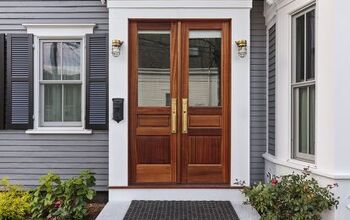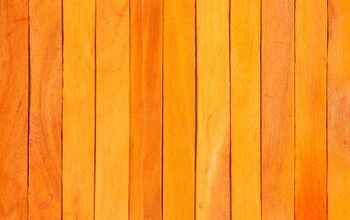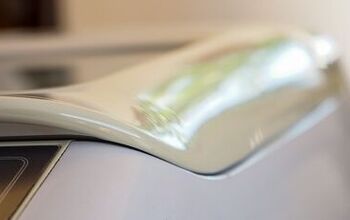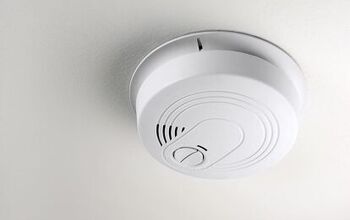How To Alligator-Proof Your Yard

Homeowners in Florida, Mississippi, and Louisiana are no strangers to alligators. Everyone would prefer alligators to stay in their natural habitat, but that’s not always the case. You’re not alone if you want to know how to alligator-proof your yard.
The best way to alligator-proof your yard is to build a 6-foot-tall fence that extends 2-4 feet beneath the ground. It’s also a great idea to install a fence around your pool or use an automatic pool cover. You can also keep alligators out of your yard if you remove food sources, such as ponds with turtles and fish.
Even a trash can that contains food scraps can attract alligators to your yard. It’s a better idea to put your trash can in the garage until collection day. Follow along as we explore how to alligator-proof your yard.
How To Keep Alligators Out Of Your Yard
1. Remove Things That Attract Them
While alligators are aggressive predators, they are opportunistic and look for easy prey. They are less likely to pursue prey than crocodiles, and they instead typically look for an easy catch. You must remove things that may attract alligators to your yard.
For example, you may attract alligators to your backyard if you have a pond stocked with fish and turtles. Alligators like to hide in water, and ponds also provide food sources for them. It’s not worth having a pond if you live in an area that’s highly populated by alligators.
You can either remove the fish and fill-in the pond or simply build a fence around it. It’s also important to throw away leftover food after a barbecue. Move your trash can into your garage if you typically leave it outside, as the food remnants can attract alligators.
2. Enclose Your Yard
It’s a great idea to enclose your yard with a fence if you live in an area that’s highly populated with alligators. You can save money with a vinyl fence as it costs an average of $3,702 to install. Make sure that the fence is at least 6 feet tall, or else an alligator can easily climb it.
Vinyl is a great option because it’s harder for an alligator to grip the material for leverage. Chain-link fences are more durable, but only if you build them tall enough. It’s also important to install the fence so that at least 2 feet of it are below the ground.
You may even want to add an extension to the top of your fence to make it harder for alligators to climb. It’s also a great idea to angle the top of the fence to prevent alligators from getting into your yard. That is what they do at many alligator and crocodile sanctuaries.
3. Secure Your Pool
Swimming pools aren’t ideal environments for alligators, but that doesn’t stop them from getting into them. They are drawn to any body of water, especially if they have been roaming around for a while. Ideally, you should secure your pool to ensure alligators, snakes, and other animals cannot get into it.
The best way to do this is to build a fence around your pool. On average, it costs $6,500 to build a fence around your pool, but there is a wide price range. You can save money with a mesh fence for $8 per linear foot, but those aren’t too durable.
Ideally, you should install the fence to go several feet below the ground. That’s because alligators can dig quite far beneath the ground. Alligators can also climb over fences, but that’s much harder with a glass fence. Otherwise, you can install an automatic pool cover and keep it closed any time you aren’t swimming.
4. Plant Hedges
Hedges are beautiful, provide privacy, and can keep alligators out of your yard. That said, you must look for hedges that grow quickly. Needlepoint hollies, English Laurels, and Leland Cypresses are among the best hedges to alligator-proof your yard.
It’s important to choose hedges that are dense enough to keep alligators out of your yard. That said, you may also want to install a fence in front of or behind your hedges.
This provides an extra layer of security that makes it even harder for alligators to invade your yard. That said, you must keep your hedges tidy, or else they may attract snakes if they are unkempt.
5. Use Motion-Activated Lights
Alligators like to remain hidden, and they often back off when they feel seen. Motion-activated lights may not stop alligators in their tracks each time, but they should at least alarm them. More importantly, motion-activated lights can let you know there is an alligator in your yard.
That way, you can quickly call your local wildlife commission. Ideally, you should install motion-activated lights that have cameras. This lets you check the camera feed to see what triggered the lights to go off. After all, you don’t want to walk outside and unexpectedly see an alligator up close.
Why Do Alligators Go Into People’s Yards?
Alligators typically invade yards because they are searching for food sources. They also roam and wind up in your yard when they are searching for mates. This is common in neighborhoods that are close to bodies of water in states like Florida, Louisiana, and Mississippi.
Alligators are bold and will sneak into any body of water, whether it be a lake, pond, or swimming pool. Once an alligator gets into a swimming pool, they often have a hard time getting out. Alligators are great climbers, but it’s hard for them to get out of a pool, depending on the material.
What To Do If An Alligator Is In Your Yard
If you live in Florida, you must call the Florida Fish and Wildlife Conservation Commission's Nuisance Alligator Hotline if an alligator is in your yard. They are equipped to safely remove alligators without agitating and harming them. Call your local animal control service if you live in another state where alligators are active, such as Louisiana.
Many states, such as Georgia, Mississippi, North Carolina, South Carolina, and Arkansas, among others, have alligators. Florida and Louisiana have the most alligators, and that’s why local commissions respond quickly to incidents. Never attempt to confront an alligator in your yard, even if you are armed.
Alligators can run as fast as 20 to 35 miles per hour, and it’s hard to outrun one. A healthy adult alligator has a bite force of over 2,000 pounds per square inch, in many cases. It’s not worth the risk to try to remove an alligator from your yard unless you’re a professional.
Summing It Up
Remove your pond to keep alligators out of your yard, especially if it’s filled with fish and turtles. Dirty grills and trash cans full of old food can also attract alligators to your yard. Install a fence or dense hedges to make it hard for alligators to get into your yard. Call a wildlife control service if you find an alligator in your yard.
Related Guides:

Nick Durante is a professional writer with a primary focus on home improvement. When he is not writing about home improvement or taking on projects around the house, he likes to read and create art. He is always looking towards the newest trends in home improvement.
More by Nick Durante










![10 Best Electric Pressure Washers – [2022 Reviews & Guide]](https://cdn-fastly.upgradedhome.com/media/2023/07/31/9070600/10-best-electric-pressure-washers-2022-reviews-guide.jpg?size=350x220)
![10 Best Scroll Saws for 2022 [Ultimate Reviews & Buyer's Guide]](https://cdn-fastly.upgradedhome.com/media/2023/07/31/9070684/10-best-scroll-saws-for-2022-ultimate-reviews-buyer-s-guide.jpg?size=350x220)
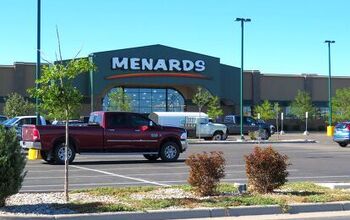
![The 5 Best Angle Grinders – [2022 Reviews & Buyer's Guide]](https://cdn-fastly.upgradedhome.com/media/2023/07/31/9071326/the-5-best-angle-grinders-2022-reviews-buyer-s-guide.jpg?size=350x220)
